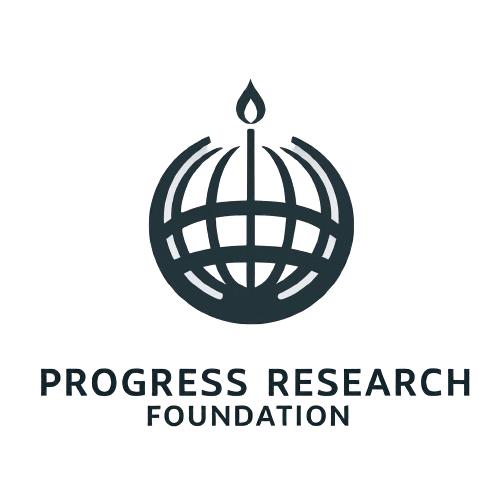People behind Progress Research Foundation
Fellows
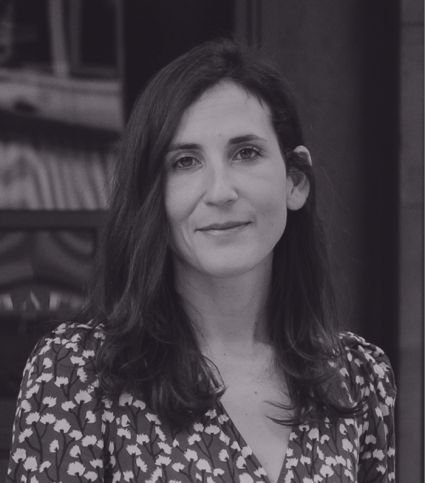
Dr. Mélissa Levaillant
Dr. Mélissa Levaillant is an international relations expert and co-founder of SELDON Conseil, a consultancy specializing in integrating social and human sciences into strategic decision-making. She is an associate senior policy fellow with the Asia Programme at the European Council on Foreign Relations (ECFR). Previously, she served as Deputy Director of Research and Studies at the French Institute for Higher Defence Studies (IHEDN), focusing on maritime issues, and as a policy officer for South Asia at the French Ministry of Armed Forces. Levaillant also held a visiting fellowship at the South Asia Institute of the Rajaratnam School of International Studies (RSIS) in Singapore.
Melissa holds a PhD from Sciences Po Paris, with a dissertation on the sociology of Indian diplomacy, using the Gulf as a case study. She is a published author of academic and policy papers on Indian foreign policy and Indo-Pacific security issues. Recently, she co-edited Paix et sécurité. Une anthologie décentrée, which brings together extra-Western texts from the pre-colonial period on peace and security concepts.
Her extensive experience across public and private sectors reflects her commitment to addressing contemporary strategic challenges through innovative, interdisciplinary methods that merge foresight with social science perspectives. Recognized for her expertise in the Indo-Pacific region, Levaillant regularly contributes to media and advises public and private organizations on these critical issues.

Mr. Billy Yi Rong Hoo
Mr. Billy Yi Rong Hoo is an Economist and Water Sector Specialist with approximately eight years of professional experience. He currently serves as a consultant at the World Bank’s Water Global Practice in Washington, DC. Mr. Hoo’s research focuses on addressing the complexities of sustainable development, particularly in the areas of climate change, water security, and human development, through research and econometric analysis.
Throughout his career, Mr. Hoo has contributed to comprehensive technical reports, sectoral diagnostics, and working papers. His work has been published in peer-reviewed journals including PLoS One, PLoS Neglected Tropical Diseases, and World Development Perspectives.
Mr. Hoo holds a Master of Public Policy (MPP) degree from the McCourt School of Public Policy at Georgetown University. He also earned a BA (Hons) in Economics and (Hons) in Public Policy with a minor in Philosophy, Politics, and Economics (PPE) from the University of North Carolina at Chapel Hill. Beyond his professional pursuits, Mr. Hoo is an avid sports enthusiast with a particular interest in football and badminton.

Ms. Qiao Wang
Ms. Qiao Wang is an accomplished economist and data scientist with over a decade of experience in bridging data science, economics, and development policy. Her work exemplifies the powerful convergence of these fields, leveraging cutting-edge machine learning and AI technologies to address global socio-economic challenges.
Ms. Wang’s distinguished research has significantly contributed to understanding how data-driven insights can inform and transform economic policies and development strategies. Her expertise spans economic and statistical modeling, machine learning applications, data analytics and visualization, and geospatial data processing.
Throughout her career, Ms. Wang has established herself as a pivotal figure in her field, continuously innovating at the intersection of data science, economics, and policy impact. Her passion for applying advanced analytical techniques to complex socio-economic issues underscores her commitment to driving meaningful change through data-informed decision-making.
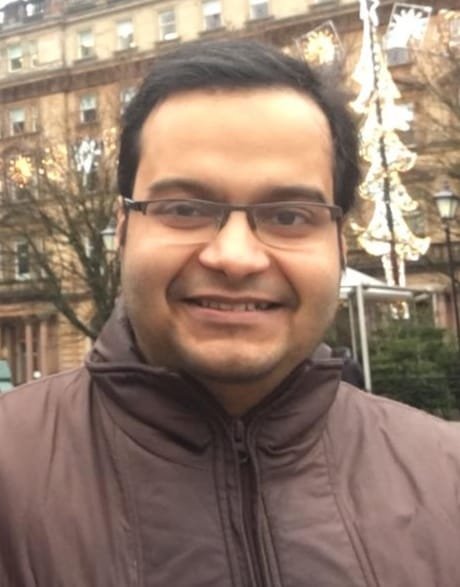
Mr. Manikantha Nataraj
Manikantha Nataraj is a PhD student in the Department of Work, Employment, and Organisation at the Strathclyde Business School, University of Strathclyde. His research focuses on the labour process within global production networks, particularly in the Indian logistics sector. His work explores the impact of production networks on employment conditions and the potential for these sectors to contribute to fair and sustainable employment opportunities in India. It further explores the role of technology in configuring the future of work.
Manikantha holds an MPhil in Applied Economics from the Centre for Development Studies, where he examined the relationship between global value chain integration and employment quality in India. He also completed a Masters in Economics from the University of Hyderabad. His academic interests span labour studies, political economy, development economics, and econometrics.
He has had the opportunity to contribute to various publications, including the European Journal of Development Research and the Journal of Small Business and Enterprise Development. His collaborative work with the Blavatnik School of Governance at Oxford University on India’s COVID-19 response reflects his engagement with current policy issues.
Manikantha has presented his research at international conferences, such as the International Labour Process Conference (ILPC) and the Indian Society of Labour Economics (ISLE). He is particularly interested in using both quantitative and qualitative research methods to address pressing issues in labour studies and development.

Dr. Swayamsiddha Sarangi
Dr. Swayamsiddha Sarangi is an economist whose research intersects labor economics and income distribution. His work examines the historical and contemporary factors shaping income distribution, with particular emphasis on labor market institutions. Dr. Sarangi, who earned his Ph.D. in Economics from the University of Utah after completing his Master’s at the University of Hyderabad and undergraduate studies at the University of Delhi, focuses on critical economic phenomena including the declining labor share of income, minimum wage policy effects under imperfect competition, and the relationship between personal and functional income distribution. His recent research contributions include an empirical investigation of labor share decline in U.S. manufacturing sectors, innovative approaches to teaching radical political economy, and scholarly engagement with contemporary issues in the platform economy.

Dr. Anjana Rajagopalan
Dr. Anjana Rajagopalan is an economist and public policy professional, working on a broad spectrum of development issues ranging from labor & skill development, climate resilience, public finance, urban governance, and health & human development. She has wide experience in academia, with the government, civil society organizations and with international partners. Anjana holds a PhD in Development Studies & Labor Economics from Jawaharlal Nehru University, Delhi, and is well-versed in qualitative techniques, statistical tools, analytical research, and planning. She seeks to unite academic and policy research through integrated efforts towards strengthening governance mechanisms at the grassroots and driving locally-led sustainable development.
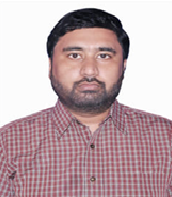
Dr. Rakesh Ranjan Kumar
Dr. Rakesh Ranjan Kumar is an economist and public policy professional with a PhD in Development Studies & Labor Economics from Jawaharlal Nehru University, Delhi. His doctoral thesis focused on issues of youth employment, skill development and technology interface in India since 1991. His MPhil from Centre for Development Studies, Trivandrum, focused on studying the dynamics of economic mobility, migration and capability interface in Kerala. His broad areas of research include labor, education, human development and sustainability. He has taught undergraduate courses at Delhi University, Bhagalpur University Bihar, BR Ambedkar University Delhi and JK Lakshmi pat University Jaipur. He has also provided research consultancy in several projects and organizations. He is currently engaged as a Senior Research Fellow at IIMAD and Consultant at the Climate Risk Horizons, Bengaluru.
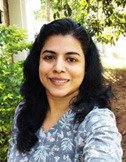
Dr. Linda Koshy
Dr. Linda Koshy is a scientist with over 12 years of research experience in the field of Human Molecular Genetics and public health. Her research interests span complex and Mendelian disease epidemiology, pharmacogenomics, stem cell biology, epigenetics and microRNA biology. She has completed research projects on Next-Generation Sequencing in Hypertrophic Cardiomyopathy and was instrumental in initiating the first Heart Failure Biobank in India, at the ICMR Centre for Excellence in Advanced Research in Heart Failure at Sree Chitra Tirunal Institute of Medical Sciences and Technology (SCTIMST), Trivandrum, Kerala. She has received research grant as Principal Investigator, from the Science and Engineering Research Board (SERB) Project under the Fast-Track Young Scientists Scheme of the Department of Science and technology (DST), Govt. of India, to elucidate the role of SNPs in microRNA binding sites in 3’UTRs of target candidate genes influencing blood pressure. As Co-PI in a project funded by the Cardiology Society of India, she proposed an algorithm based on genetic polymorphisms to calculate the maintenance dose of oral Vitamin K antagonist required in a South Indian population who need prosthetic heart valves. During her postdoctoral studies at Yamaguchi University Graduate School of Medicine, Japan, identified the brain-specific Fatty Acid Binding Protein 7 (FABP-7) as a biomarker of glioma stem cells which can be used for prognostication. She holds a Ph.D. in Biotechnology from the Rajiv Gandhi Centre for Biotechnology, Trivandrum, India, where she focused on identifying genetic and other risk factors associated with intracranial aneurysms in South Indian population. She completed her Master’s at the Cochin University of Science & Technology, Kochi, Kerala, India. She has authored or co-authored over 40 peer-reviewed publications that include original articles, systematic/scoping reviews, meta-analysis, book chapter and case-reports.
